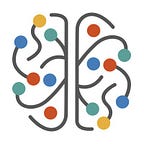Moving to Employee Engagement 3.0
In this issue, we look at Josh Bersin’s view of the employee engagement market and why he thinks we’re moving into a new phase focused on behaviour change with the launch of new products like Humu.
We also look at the fallout from the Amazon gender-biased algorithm and how one company is using AI to reshape and capture new information on candidates as part of the recruitment process.
Employee Engagement
Employee Engagement 3.0: Humu Launches Nudge Engine
Josh Bersin gives his usual excellent analysis of the progress of employee engagement from annual surveys (1.0), to more frequent pulse surveys (2.0) to a new phase (3.0) focused on driving behaviour change by using feedback and data to give everyone tips to perform better. It is interesting to watch the shift that we are seeing, powered by AI, to generate data and insights for everyone at work, not just management. We are also seeing a rise in the way that insights are delivered at the point that people need them to make decisions, and via multiple communication channels, instead of via static dashboards or reports.
Bias in Recruitment
Applied gets $2M to make hiring fairer — using algorithms, not AI
Nice coverage of London-based startup Applied, who have just received £1.5M (~$2M) in seed funding. Applied offers a diversity-sensitive approach to recruitment that deconstructs and reworks the traditional CV and actively harvests data on the skills being sought, with employers also being able to use the platform to set tests to measure skills and capabilities. They emphasise that instead of using AI to screen and match candidates based on historical data sets, they are using algorithms to reshape the information you see. I will be very interested to see how this tool develops.
Owain Service, CEO of BI Ventures, states: “Applied uses the latest behavioural science research to help companies find the best talent. We ourselves have recruited over 130 people through the platform. This investment represents an exciting next step to supporting more organisations to remove bias from their recruitment processes, in exactly the same way that we do.”
Amazon’s Gender-Biased Algorithm Is Not Alone
Excellent analysis from Cathy O’Neil of the Amazon gender-biased algorithm issue, that highlights why it is so important that we can audit and understand the AI we are using to predict hiring decisions. She also scarily points out why unfortunately many companies will favour plausible deniability over transparency and are likely to ignore the issue until they’re forced to do otherwise.
Learning from Hospitality
How tech can help solve your hospitality HR problems
Some fascinating lessons from the hospitality industry on how to use technology to deal with HR issues in an environment of high volume hiring and large-scale attrition. Some great insights if you work in hospitality, but also contains great ideas if you don’t, as many of the learnings apply to other industries with large employee populations and cover employee engagement, onboarding and helpdesk management.
Future of Work
A look at the workplace and workforce of the future
Great article from PeopleMatters on the future of work and how corporate functions such as HR, IT, Procurement and Finance will need to adapt as the structure of the workforce continues to evolve. It is clear that we will need to adapt not just our mindsets and behaviours but also business processes and technology to support how we manage and attract an agile workforce in the future.
Case Study
How to Improve New Hire Engagement and Onboarding for Technical Employees Using AI and Chatbots
Talla continues to innovate in the way that it tackles knowledge management and uses chatbots to answer employee queries. This is a great case study of how rLoop has used Talla to onboard new employees, introduce them to new projects, and get them set up the new tools they need. When team members have a question, they simply ask Talla. If Talla doesn’t already have an answer in its knowledge base, then it’ll automatically kick off a workflow to find the answer, add that information to the knowledge base, and notify the person that originally asked the question.
rLoop’s co-founder Brent Lessard says “We began using Talla as a trial to simplify much of the onboarding process and to separate aspects that didn’t require human involvement. It didn’t take long for us to roll it out across the board, with a measurable increase in new user engagement and decreased need for human intervention.”
